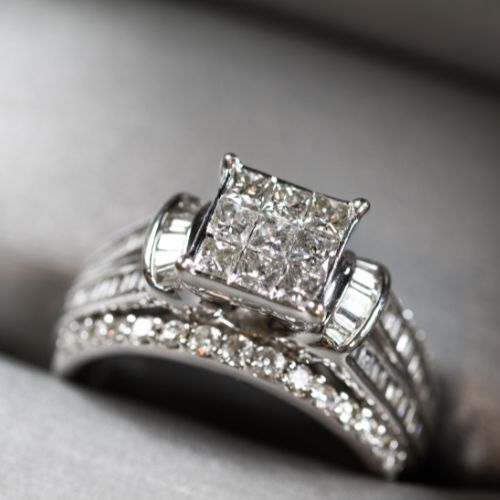Diamonds have been captivating the hearts of people for centuries, as these precious stones have come to symbolize love, luxury, and status. However, have you ever heard someone tell you that diamonds aren’t actually rare and that their value is principally in the public’s perception? This growing discourse suggests that the diamond industry is a marketing scam, a claim that beckons a closer look into the realities behind the diamond market. Learn the facts for yourself below.
Are Diamonds Actually Rare?
Like any other gem, natural diamonds do have inherent rarity and value. Diamonds take time to form and require intense efforts for extraction. It’s also true that people used to not have access to a huge diamond supply like we do today, increasing diamonds’ rarity.
However, the discovery and exploitation of vast mines in South Africa in the late 1800s promptly changed the situation. Today, the perceived scarcity of diamonds is a subject of contention. While they are not as omnipresent as some minerals, diamonds are more abundant than the industry would have us believe. In fact, a few large companies hold the majority of diamond mines, instrumentation, and distribution, effectively manipulating the market and sustaining the illusion of rarity.
The Role of Marketing in Diamonds’ Perceived Value
Marketing strategies are central to how diamonds became part and parcel of the fabric of romance and commitment. The 20th century saw the De Beers company launch a campaign that would forever change the public’s view of diamonds. With the slogan “a diamond is forever,’ the company tied the gem to the concept of eternal love, insinuating that the worth of romantic gestures depends on the size and sparkle of a diamond.
This narrative played a pivotal role in inflating the diamonds’ value; it has been so ingrained in our culture that the mere mention of engagement rings conjures images of dazzling diamonds. Likewise, for many people, diamonds are the most romantic anniversary gifts. Today, the idea persists: if you want to show your love how much you care, show them a diamond.
What Consumers Can Do
The diamond industry might be more sparkle than substance, but consumers have the power to influence change. First and foremost, understanding the true rarity, value, and origins of these stones can empower consumers to make informed decisions. Another approach is to explore alternative stones—gems that are just as beautiful and often more unique than the traditional diamond. Even if you have your heart set on a diamond, there are many benefits of lab-grown diamonds, two of which being their affordability and independence from mining control. Finally, no matter what stones you choose to represent your love, ethical sourcing and transparency are essential to consider. Choose transparent jewelers that allow consumers to support fair and sustainable practices.
Though diamonds are undeniably beautiful gems with inherent value, the diamond industry is a marketing scam in many respects. Now that you’re informed, you can redefine what precious means to you and how you want to symbolize your love—even if it’s with a diamond!

